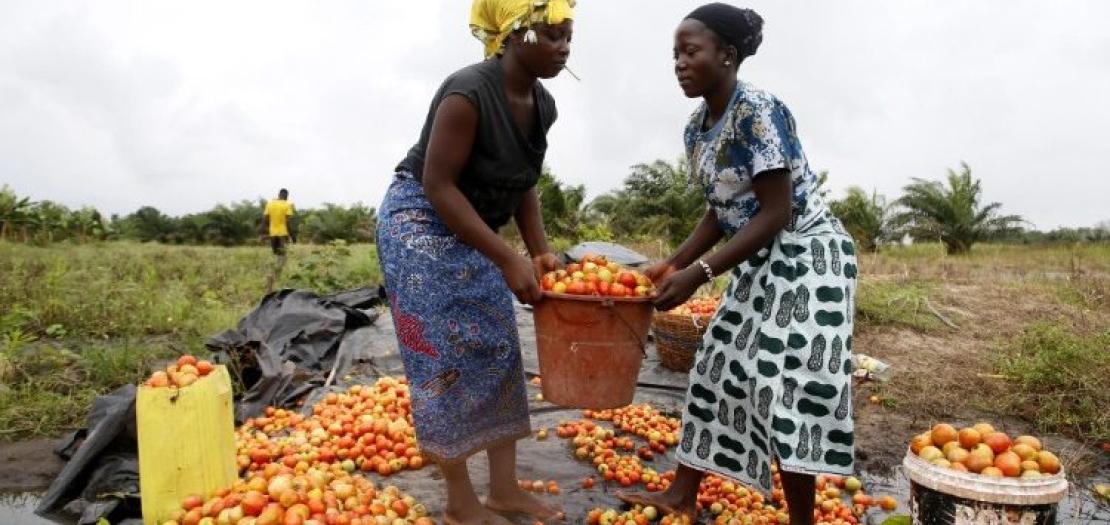Issued by the Catholic Center for Studies and Media - Jordan. Editor-in-chief Fr. Rif'at Bader - موقع أبونا abouna.org

Recent UN data tells us that women engaged in the agricultural sector represent over a quarter of the world’s population. In developing nations, that figure goes up to 43 per cent of the entire agricultural workforce.
These statistics feed into Pope Francis’s reiterated call for the recognition of rights and the empowerment of rural women for the common good, as articulated in his Message for the 2021 World Pulses Day, in which he highlights how “rural women have much to teach us about how effort and sacrifice enable us to build, alongside and not dependent upon others, the fabric that ensures access to food, the equitable distribution of goods, and the possibility for every human being to realize their aspirations.”
But although rural women are as productive and enterprising as their male counterparts, they face numerous difficulties, including the fact that their work remains invisible, is not recognized and is often unpaid.
A one-day conference organized by the Pontifical Gregorian University in collaboration with the Holy See’s Permanent Mission to the UN Agencies for Food and Agriculture on Monday focused on the importance of strengthening the link between women and food security in order to allow them to fully develop their potential and help the world achieve food and nutrition security for all.
Marcela Villarreal, Director of the Partnerships Division at the UN’s Food and Agriculture Organization (FAO), told Vatican Radio that if women in rural areas had equal access to productive resources in agriculture, this would have an immediate effect on world hunger.
Villarreal said FAO studies show that “if women in rural areas had access to the same productive resources in agriculture that men already have, no matter how poor and how poor the rural areas are,” equal access to productive resources would immediately increase agricultural production, agricultural productivity” and immediately the number of hungry people in the world would decrease.
Explaining what is intended as “productive resources in agriculture,” she said they refer mainly to land, but also very importantly “credit, technology, extension services and all other services necessary for the production in agriculture.”
Of course, to be able to chart a new course, it is important to understand why women don't have equal access, and Villarreal says this happens for a number of different reasons.
“What is important for us to know, is that if we have adequate policies, we are able to reduce those differences, to reduce those gender gaps,” she said.
Experience shows, she added, that “whenever a country, a government, wants to reduce gender gaps in agriculture and access to productive resources and agriculture, it can be done.”
“There are policies that are very effective” in this regard.
Good policies equal hunger reduction
FAO, the Partnerships Division’s Director said, supports countries to develop these policies.
“We have seen that instantly, as soon as countries have adequate policies to ensure that women have the access they need to productive resources,” she reiterated. “We instantly see an improvement in the wellbeing of the family, the nutrition of the children, the wellbeing of the whole community and also a very significant reduction in hunger.”







